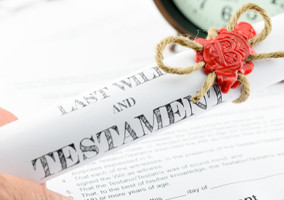The following are information and insights on three of our most requested topics: the job retention scheme, key Brexit policies and the new Charity Governance Code.
Job retention scheme
Further to the Chancellor’s announcement made on 17 December 2020, the Coronavirus Job Retention Scheme (CJRS) will be extended until April 2021.
Whilst we are awaiting the publication of the updated Treasury Direction, the following details concerning how the CJRS will be applied have been published by HM Revenue & Customs (HMRC):
- The Government will pay up to 80% of an employee’s salary.
- A monthly salary cap of £2,500 will apply.
- The employer will be responsible for paying National Insurance and pension contributions.
The Job Retention Bonus will not be paid in February 2021. However, a further retention incentive will be announced at a later date.
Brexit and VAT
As the Brexit transition period has now ended, here are some key tax-related considerations.
Intrastat
If you submit Intrastat forms for transferring goods to and from countries in the EU, you will still need to submit arrival forms, at least for 2021, however, you are no longer required to submit dispatches forms.
EC sales lists
From 1 January, these are no longer required unless your business is located in Northern Ireland.
The Mini One Stop Shop (MOSS)
If you are registered for MOSS, you will no longer be able to submit the existing MOSS returns to HMRC. You will either have to register for VAT in each of the EU states where you trade, or register in one other EU state to use what is referred to as the NonUnion MOSS and submit returns to that country’s tax authority.
VAT return boxes
Boxes 2, 8 and 9 of your VAT return are no longer relevant and should be completed as nil, unless your business is located in Northern Ireland.
Importing goods
If you are importing goods into the UK then you should account for VAT using what is known as “postponed accounting”, as follows:
- If the value of the good is £100 and the item is standard-rated, you declare £20 VAT in box 1 and £20 VAT in box 4, provided you are able to claim back VAT in full.
- If you are partly exempt or otherwise unable to recover VAT in full, you would enter the amount of VAT in box 4 that you are entitled to claim.
- Instead, a business will need to charge the relevant VAT rate in the country where the goods are being sold but would declare this VAT via the MOSS return.
UK businesses can also use this MOSS system but would need to register as a “non-Union” taxpayer in one EU member state of their choosing. The UK business would need to submit regular domestic returns in that country as well as the quarterly MOSS returns, like any other EU e-commerce business, preventing the need for them to register in every EU country they are selling goods into.
What to do now?
If you are a UK business that sells goods to non-business customers in EU countries, you should consider whether to treat your sales as being zero-rated exports or whether to register for VAT in another EU country. Advice should be sought as to the VAT registration requirements in the EU country in question.
The Charity Governance Code
The Charity Governance Code has been refreshed: principally to update the renamed Equality, Diversity and Inclusion (EDI) Principle, but also to update the Integrity Principle to emphasise the right of everyone who has contact with the charity to be safe.
Boards should:
- Think about why equality, diversity and inclusion is important for the charity and assess the current level of understanding.
- Set out plans and targets tailored to the charity and its starting point; monitor and measure how well the charity is doing.
- Be transparent and publish the charity’s progress.
The refreshed code includes a new recommended practice asking trustees to:
- Understand their safeguarding responsibilities.
- Establish appropriate procedures that are integrated with the charity’s risk management approach.
- Ensure that everyone in contact with the charity knows how to speak up and raise concerns.
Richard Weaver is partner and head of charities and not-for-profit at haysmacintyre
Related articles












